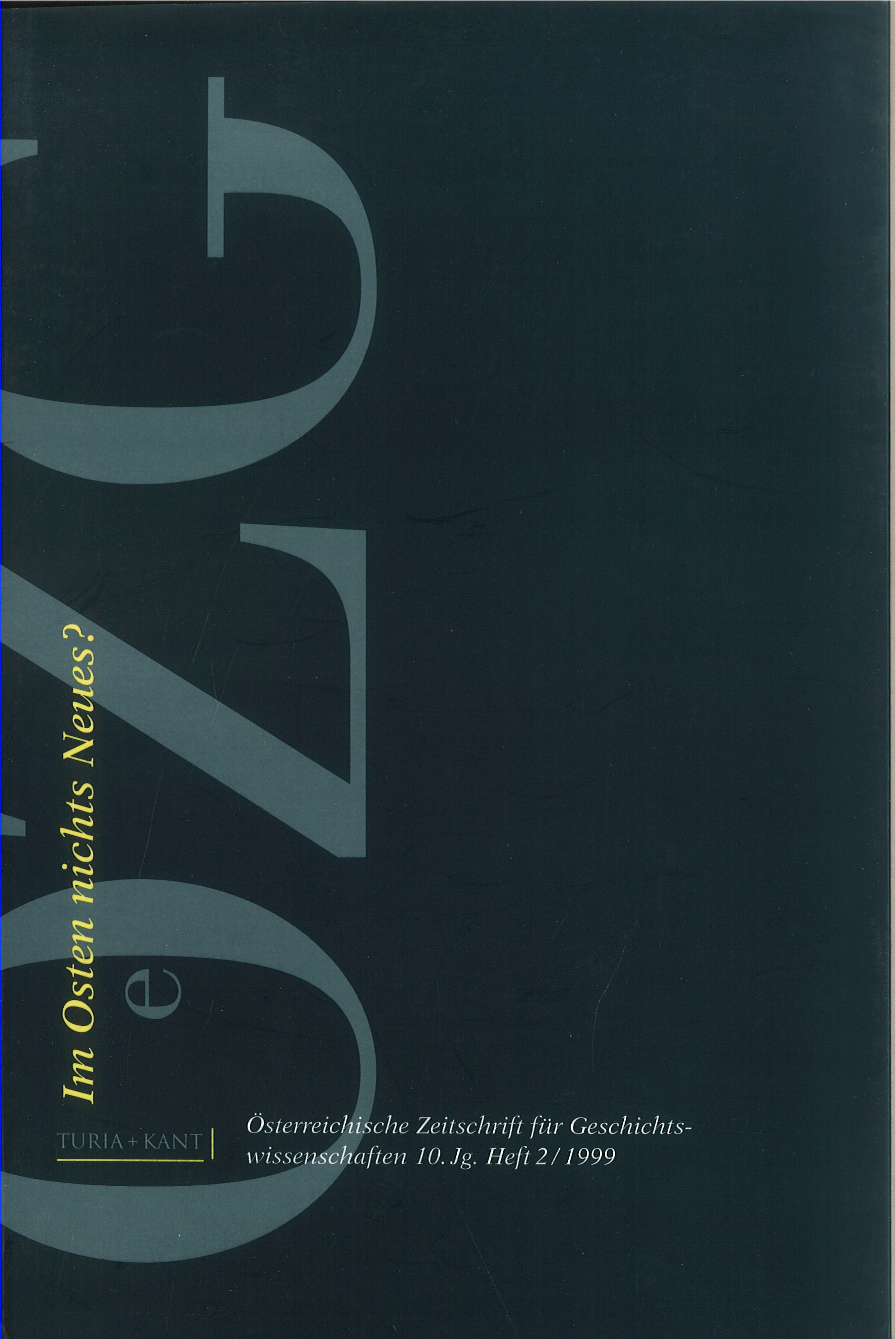Eintritt nach Europa
Geschichte, Ideologie und Mythologie im Rumänien des neunzehnten Jahrhunderts
DOI:
https://doi.org/10.25365/oezg-1999-10-2-2Abstract
Social and political development in 19th century Romania was characterised by the endeavours of the Romanian elite to bring their country up to Western European standards. Young members of the social elite introduced western models, ideologies, political institutions and fashions. Between 1830 and 1860 the country left the fold of Eastern European culture and replaced its Cyrillic alphabet by a Latin one. The revolution of 1848 and the unification of Moldavia and Valachia in 1859 set the country on the road to modernisation and capitalisation of its economy. The arguments for the severe social changes, as proposed by the different political elites, were mainly historical. These contemporary social projects were projected into an imaginary Romanian past, different political orientations resulting in different historical perspectives. Although or rather because there were no or very little historical facts available, the question of early Romanian history, the fate of the Roman settlers after the retreat of the Roman troops from Dacia in 274 A. D. and the question of continuity of these societies into modern Romanian society dominated the Romanian historical debate for more than a century.


